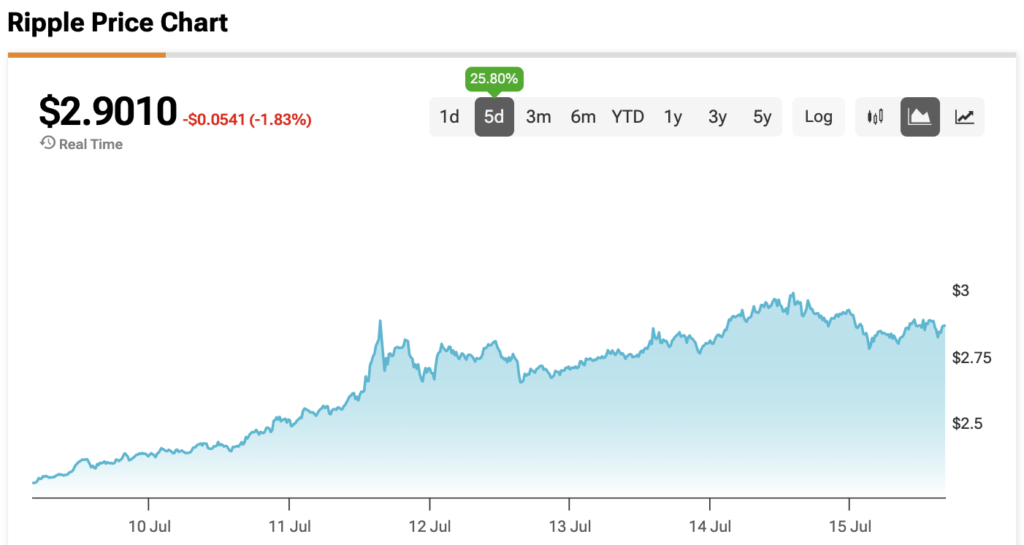Ripple is officially setting its sights on Europe. The company behind XRP (XRP-USD) has confirmed plans to pursue a Markets in Crypto-Assets (MiCA) license. This positions itself to expand its crypto and stablecoin operations across the entire European Economic Area. In a statement to Cointelegraph, a Ripple spokesperson said the company intends “to become MiCA-compliant,” citing “significant opportunity in the European market.”
Elevate Your Investing Strategy:
- Take advantage of TipRanks Premium at 50% off! Unlock powerful investing tools, advanced data, and expert analyst insights to help you invest with confidence.
This move comes as regulators across the EU begin enforcing MiCA, a sweeping new crypto framework aimed at standardizing digital asset rules across all 27 member states. One might assume Ripple is doing this to avoid more legal heat, something the company has arguably grown accustomed to by now, but the real driver is strategic. Becoming MiCA-compliant acts as a gateway to tapping into one of the largest regulated crypto markets in the world. This could potentially unlock billions in cross-border payments and stablecoin flows.
Luxembourg Becomes Ripple’s Strategic Foothold
As part of this effort, Ripple has registered a new legal entity in Luxembourg called Ripple Payments Europe S.A. This move mirrors the approach of other major firms that have chosen Luxembourg as their EU base due to its regulatory clarity and established financial infrastructure.
According to reports, Ripple may have already applied for an electronic money institution license in the country. While the company declined to confirm that detail, the direction is unmistakable. Luxembourg is quickly becoming a magnet for companies seeking to operate within MiCA’s scope, and Ripple appears intent on being one of its flagship names.
Ripple Joins a Growing List of MiCA-Compliant Giants
Ripple is not going it alone. Earlier this year, Coinbase (COIN) secured its MiCA license from Luxembourg regulators and declared the country its EU headquarters. Around the same time, Standard Chartered also launched its crypto services in Europe after receiving its own digital asset license in Luxembourg.
This puts Ripple in elite company. The firm is aligning itself with established financial institutions that view MiCA not as a hurdle, but as a gateway to growth. Now that MiCA is in effect, the companies that can meet all the rules are the ones most likely to win over big investors and land key partnerships.
MiCA Signals a High Bar that Ripple Is Willing to Clear
It’s worth noting that Luxembourg has not taken a lenient stance on crypto. In May, the country’s financial intelligence agency labeled virtual asset service providers as high-risk entities for money laundering purposes. Despite this, major firms continue to set up shop there, suggesting that the clarity of the rules matters more than the stringency.
Ripple’s willingness to operate under strict oversight shows a long-term strategy. Rather than fight regulation, the company is embracing it. This puts it in a better position to win trust among banks, governments, and enterprise clients who want clear rules and someone to answer to.
What This Means for Ripple’s Stablecoin Plans
Securing MiCA approval would unlock enormous potential for Ripple in Europe. It could scale its RLUSD stablecoin operations across borders, launch euro-denominated stablecoin products, and build out payment rails that comply with the highest regulatory standards.
More importantly, this would give Ripple the ability to serve large financial institutions across the EU with a legally sanctioned platform. That could help the company push further into enterprise payments, remittances, and on-chain financial products; markets that are hungry for regulated crypto solutions.
At the time of writing, XRP is sitting at $2.9010.

















